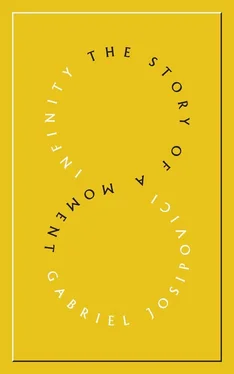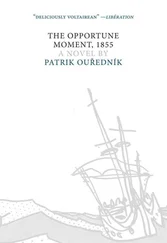— Like who?
— Lao Tse. Or something like that, sir.
— I see. And what did he say, this Lao Tse?
— That’s all he said.
— That’s all?
— Yes, sir. That’s all Mr Pavone said he said, sir.
— I see. Go on.
— Yes, sir. How would you like me to go on?
— Go on with what you were saying.
— That’s all. Mr Pavone didn’t say anything more about him.
— Not subsequently?
— Not that I can remember, sir.
— I see. Tell me what your duties were in the house.
— Annamaria did the cooking and the washing. I looked after Mr Pavone’s clothes and did other things like ordering his train and plane tickets and I ordered taxis for him when he needed them in Rome and of course I drove him when he wanted to be driven out into the Campagna.
— Who else did he employ?
— There was Annamaria and myself for the house. And, for his music, and to help him with the secretarial work and so on first he had Manfred Holthausen to do that. Then he had Yehuda Mazor. Then he had April Mauss. Then he had Alessandro Bonfiglioli. Finally, Sebastiano Testoro.
— Why so many?
— Mr Pavone had exacting standards, sir. He wanted his manuscripts just so. He told me: My scores are the record of my life. Some people write War and Peace , he said, I write Akrita and Ruach . Tolstoy’s family preserved his manuscripts as holy relics. I do not have a family and I am not interested in holy relics, but I intend to leave all my manuscripts to the Foundation I have set up, the Fondazione Tancredo Pavone, here in Rome, and I intend everything to be in order when I die. There is nothing more depressing, he said, than to try and bring order to the chaos left by the deceased. There is nothing more depressing than going through the wardrobes of the deceased and sorting out the clothes that should go to the family and those that can be given to charity and those that should be thrown away. There is nothing more depressing than sorting through trunkloads of old letters and papers in the vain hope that something of interest will turn up. No, he said. Everybody owes it to their executors to leave everything as well-organised as possible. I have kept all the letters sent to me in separate files under the names of the correspondents, he said, and these are arranged alphabetically in three large trunks in the attic, trunks to which I add periodically. I have had a catalogue made of all my books, he said, and designated which of them should remain in the Fondazione Tancredo Pavone and which should be sold and which should be given away. In all this, he said, Federico has been invaluable. He will be in charge of the Fondazione when I die. Order, he said. Order and hard work. Those are the keys. Of course, he said, without a radical reorientation of the self such as I underwent in Nepal, neither order nor hard work would be of any use at all. They would be a mockery, he said. An insult. But, given such a reorientation, only order and hard work will yield results. And if I work hard, he said, why should not those I pay to work for me work hard as well? He said that if they worked for him they should be dedicated to his music. If they are not dedicated to my music they are of no use to me, he said. If they are not dedicated to my music I might just as well employ a donkey, he said.
— He quarrelled with them?
— I would not say quarrelled. Mr Pavone was an aristocrat. He did not raise his voice. But if he felt they were not dedicated to his music he locked the door against them.
— Locked the door?
— At first they thought they had taken the wrong key, and they rang the bell, but when nobody answered they went away and telephoned. But I had instructions. When they came again and banged on the door I had to tell them that their service was terminated. I had to pack away their belongings and to give it to them without letting them into the house. That is when my size became an advantage. They asked to speak to Mr Pavone, of course, but he would not speak to them. Instead, he instructed me to tell them he had terminated their contracts. Of course this led to much abuse. But that was part of my job. They wrote him letters and Mr Holthausen even got his lawyers to write and threaten him, but he did not reply to their letters and nothing happened.
— But while they were working for him he treated them as friends?
— He was always correct with them.
— Meaning what?
— He was not a man who cared for intimacy.
— What kind of work did they do for him?
— I am not a musician. I cannot say.
— It has been said that they wrote the music he passed off as his own. What do you have to say to that?
— I am not a musician.
— But you know that he has been accused of making use of someone else’s work.
— They have said that?
— It has been said.
— I wouldn’t know, sir. I am not a musician.
— But he talked to you about his music.
— When we were driving. Late in his life. Then he would talk to me. About everything. About his childhood. About his marriage. About his friendships. Even about music. Really it was himself he talked to, sir, if you know what I mean. I was driving the car. He talked to me but I think he was really talking to himself.
— What did he say about his childhood?
— Oh, many things.
— Tell me some of the things.
— As you know, sir, he spent his childhood first in La Spezia, where his father, a naval officer, was stationed. But also in the family house in Sicily.
— What did he say about those years?
— He said that he began to improvise at the piano at the age of three. I would rush upon any piano that happened to be around, he said to me, and I would beat it with my fists and kick it with my feet. But no one ever said to me: What are you doing? You will break the piano. No. Everyone was astonished, but they never told me to stop, he said. I am eternally grateful to them for that. All through my life, he said, I have rushed upon everything, music and poetry, women and food, with my fists and my feet flailing out, but no one ever told me to hang back. It is to that I owe my musicianship, he said, which is better than that of anyone in the world because it is an uninhibited musicianship. Those composers who have learned how to write down notes and to compose complicated counterpoint and all the rest of it have been robbed of their patrimony, he said, which is the patrimony of hands and feet. On les a privés de leur patrimoine , Massimo, he said, qui est le patrimoine des mains et des pieds . We should attack everything in life as if it was a mortal enemy and a lover, as if it was both of those at once, a mortal enemy and a lover. Only Kleist understood this, he said, because he was an aristocrat and an officer. In the Penthiselea of Kleist, he said, which that old woman Goethe could not stomach because it gave him the shivers, the Amazon queen kills Achilles and then eats him because her love for him is too great for anything less, and in the end Kleist killed himself because his mouth was too small for the bites he wanted to take out of life. He killed himself, he said, in order to widen his mouth. If he had had the chance, as I had, to go to Nepal, he said, he would not have killed himself, he would have understood that there is an inner mouth which is bigger than any human mouth and that with that inner mouth we can bite off as much of the world as we want. My parents, he said, always let me do what I wanted. They did not try to send me to school or give me lessons of any sort which would have ruined my life before it had even begun, as it has ruined the lives of the majority of the civilised world, so called. In that way they laid the foundations for my music. Can anyone ask more of parents? he said. If I wanted to climb a tree, I climbed a tree. If I wanted to spend sixteen days and nights in the library, I spent sixteen days and nights in the library. They did this because my father was too busy with his naval duties and my mother was too busy with her dresses and her hair. Most of the time they forgot that I existed and it was only thanks to the servants that I survived. But that is better than being ordered about every hour of the day and made to do this and that and the other thing. Sometimes the serving girls took me into their beds and that is how I learned about women and sex, he said, without anxiety and without guilt, exactly in the way it should be. They made me realise that in addition to hands and feet we have sexual organs and that these sexual organs have been given us not only to reproduce but as a gateway to the feelings of the entire body, as the entrance way to pleasure. It would be better, he said, if those composers who live only to have their noses photographed for the papers had their sexual organs photographed instead, if instead of posing in front of the Forum and the Tower of Pisa and St Mark’s in Venice and looking wise in their studies, they invited photographers into their bedrooms and bared their members. Then it would be obvious, he said, that there is absolutely no difference between a composer and a chimpanzee, except that a chimpanzee can scratch where a composer can’t.
Читать дальше












